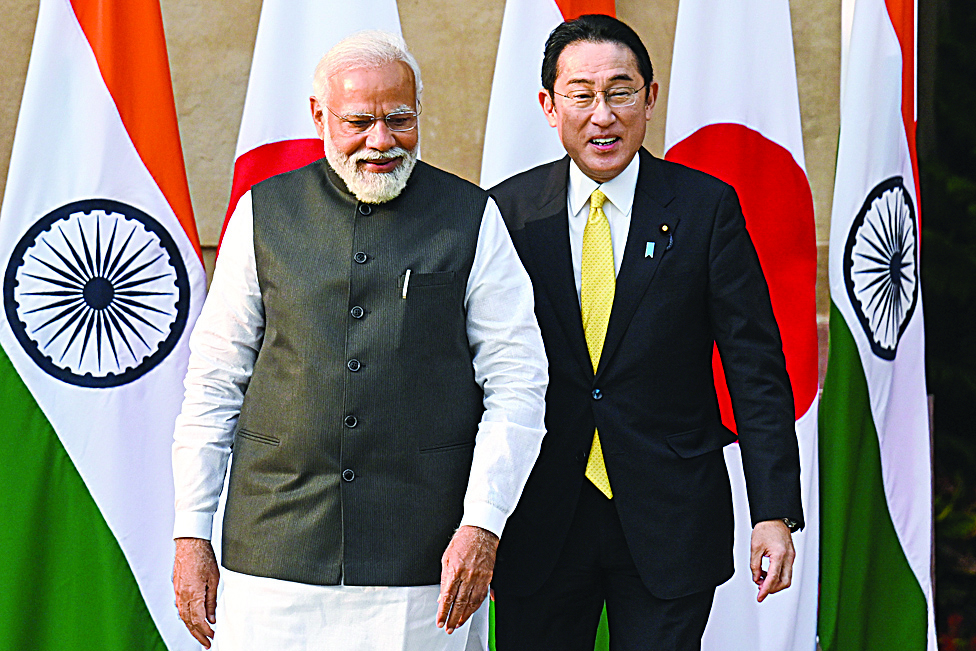NEW DELHI: Japanese Prime Minister Fumio Kishida arrived in India yesterday with officials in Tokyo predicting "candid discussions" about New Delhi's unwillingness to condemn Russia's invasion of Ukraine. Unlike fellow members of the Quad alliance -- Japan, Australia and the United States -- India has abstained in three UN votes deploring Moscow's actions, calling only for a halt to the violence.
Earlier this month in a four-way call of Quad leaders, Kishida, US President Joe Biden and Australian Prime Minister Scott Morrison failed to convince India's Narendra Modi to take a tougher line. A joint statement had said they "discussed the ongoing conflict and humanitarian crisis in Ukraine and assessed its broader implications" -- without any condemnation of Moscow. A separate Indian readout pointedly "underlined that the Quad must remain focused on its core objective of promoting peace, stability and prosperity in the Indo-Pacific region."
Ahead of Kishida's visit, the first by a Japanese premier since 2017, a foreign ministry official said Tokyo was "aware" of Delhi's "geographical location and historical ties to Russia". "But at the same time we share fundamental values and strategic interests so naturally there will be candid discussions about how we view the Ukraine situation, and also expect to hear a similar explanation from Prime Minister Modi," the official told reporters. He added that Modi, 71, and Kishida, 64, would also discuss "issues closer to our region" such as a "free and open Indo-Pacific" -- a reference to China -- and bilateral issues.
"That will be more the opportunity to take stock of the bilateral cooperation as well as reaffirming our shared strategic vision and interests rather than emphasizing on what our differences are," the official said. India's foreign ministry said only that the talks aimed to "review and strengthen the bilateral cooperation in diverse areas as well as exchange views on regional and global issues of mutual interest so as to advance their partnership for peace, stability and prosperity in the Indo-Pacific region and beyond."
'History books'
Modi and Morrison are also due to hold a virtual summit on March 21 focused on trade, when the Australian premier may also press his Indian counterpart to fall more into the Western camp over Ukraine. Russia has been India's main arms supplier since the Soviet era, but today Delhi also needs more support from the Quad and others in the region and beyond in the face of an increasingly assertive China.
Asked about India's stance and its continued purchases of Russian oil, White House press secretary Jen Psaki this week urged all foreign nations to "think about where you want to stand when history books are written". Tensions between New Delhi and Beijing have been high since a 2020 clash on their disputed Himalayan border killed at least 20 Indian and four Chinese soldiers. Both have since sent additional military hardware -- in India's case much of it Russian-made -- and thousands of extra troops. In a possible sign of thawing tensions, China's Foreign Minister Wang Yi will reportedly travel to India later this month, the senior-most official to visit since the 2020 clash. - AFP











